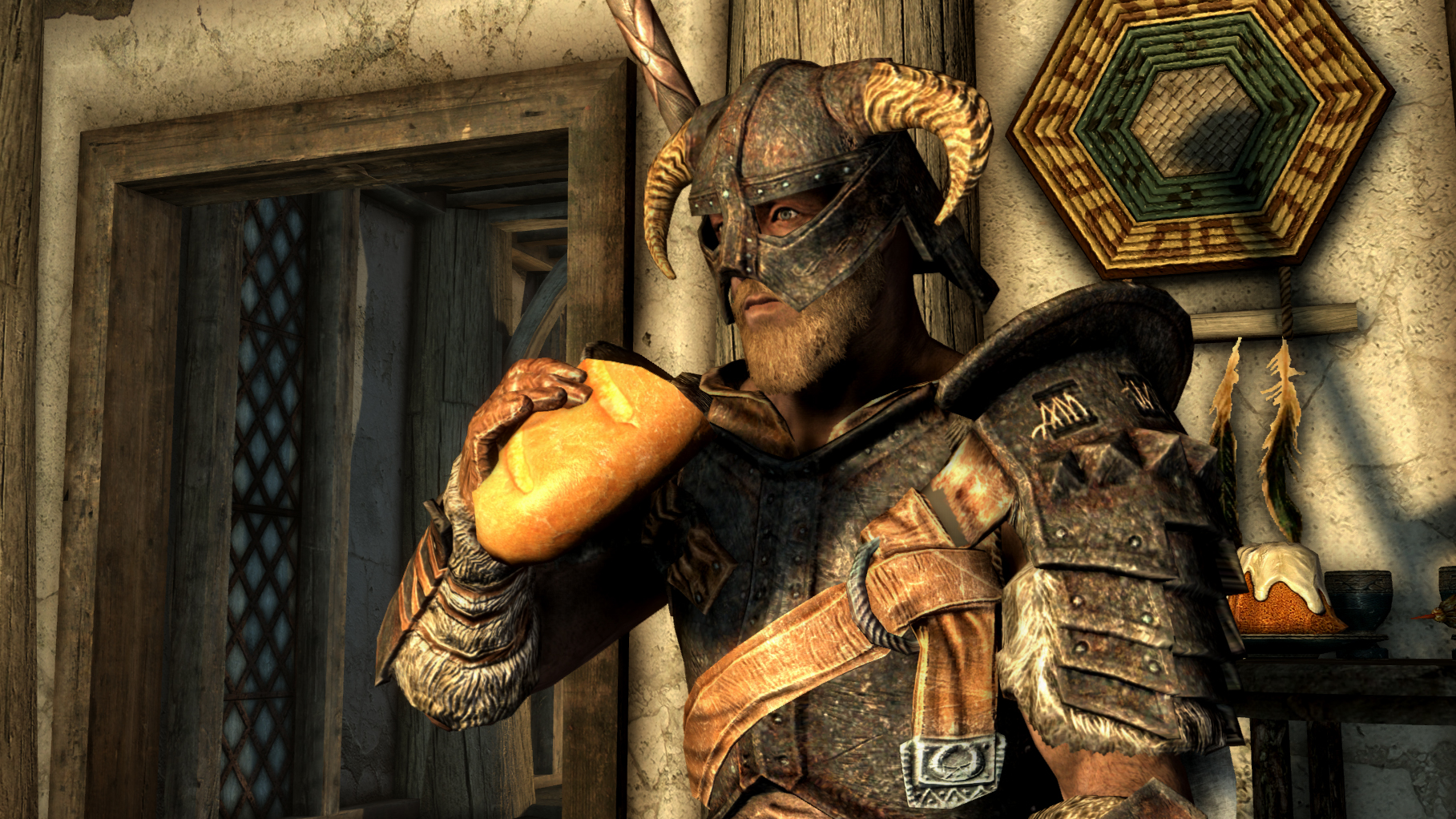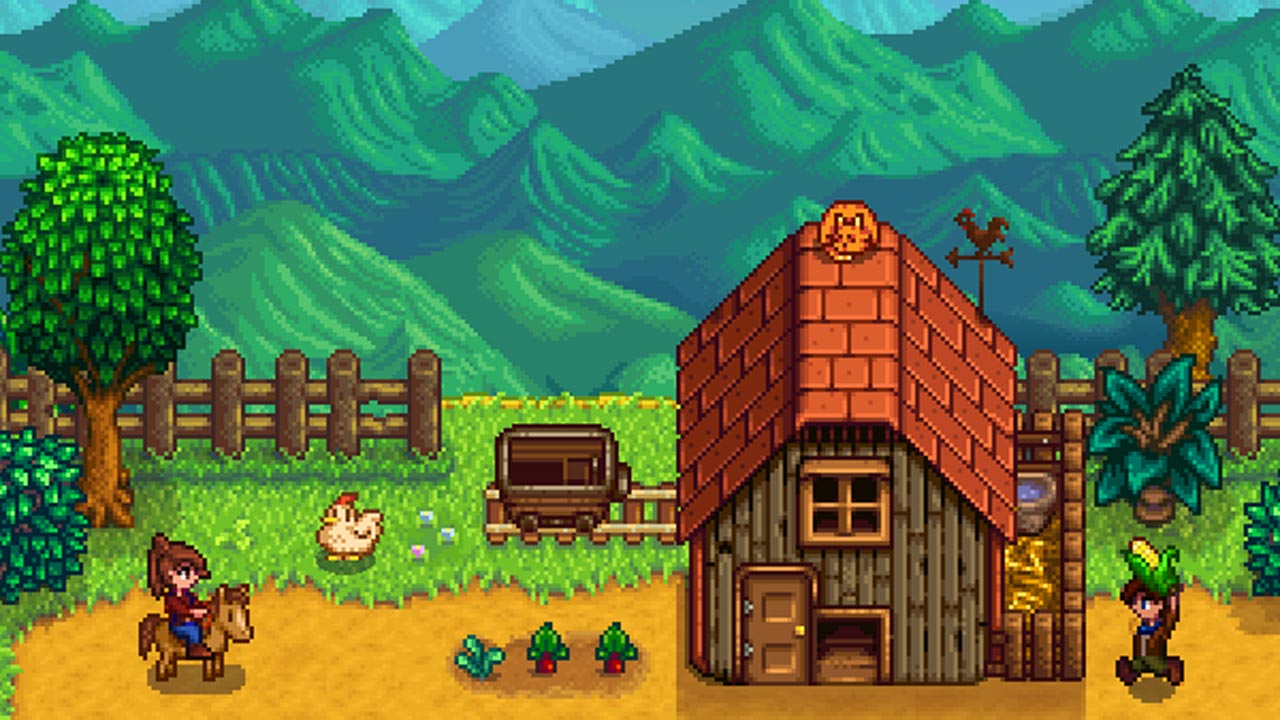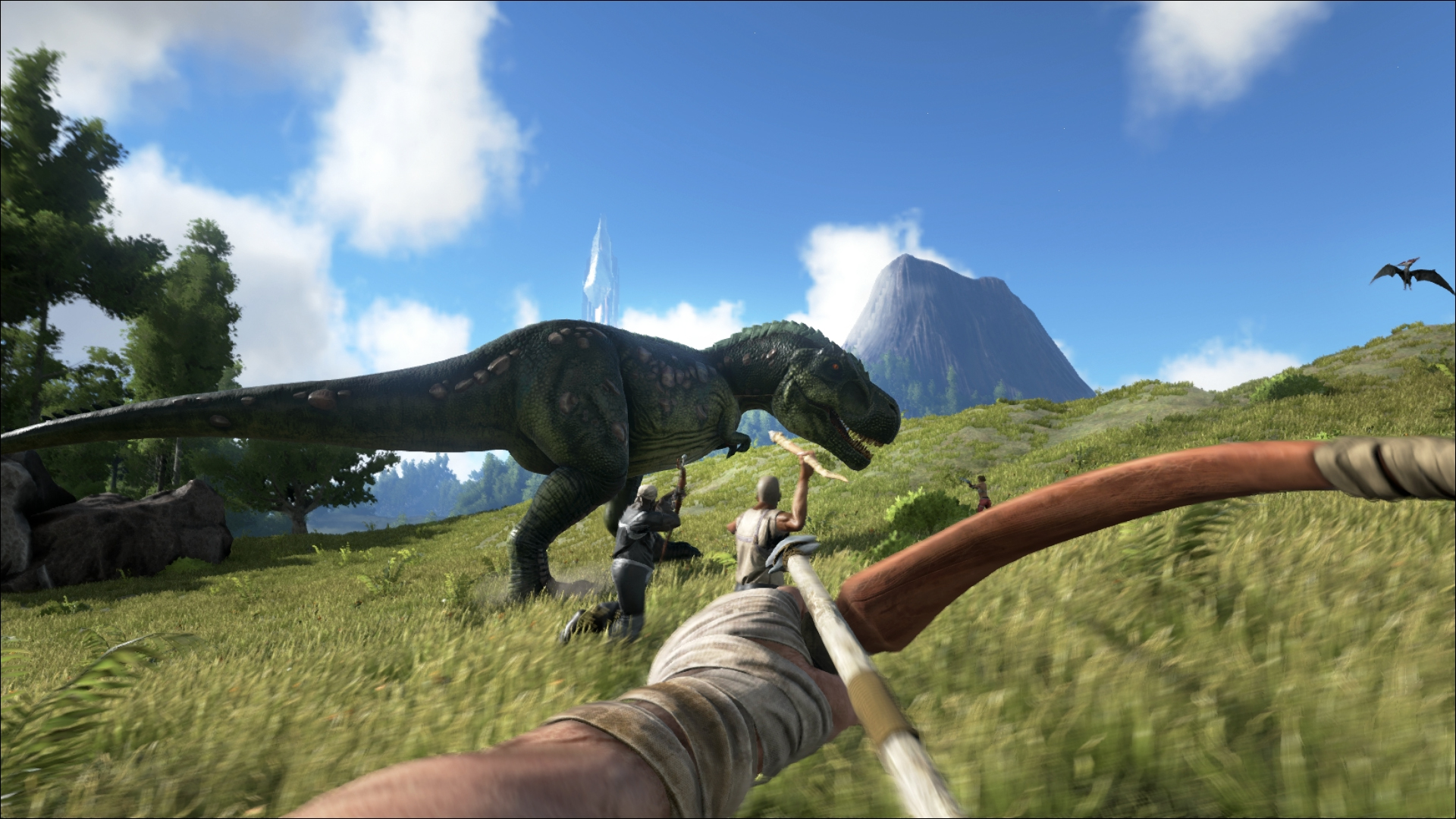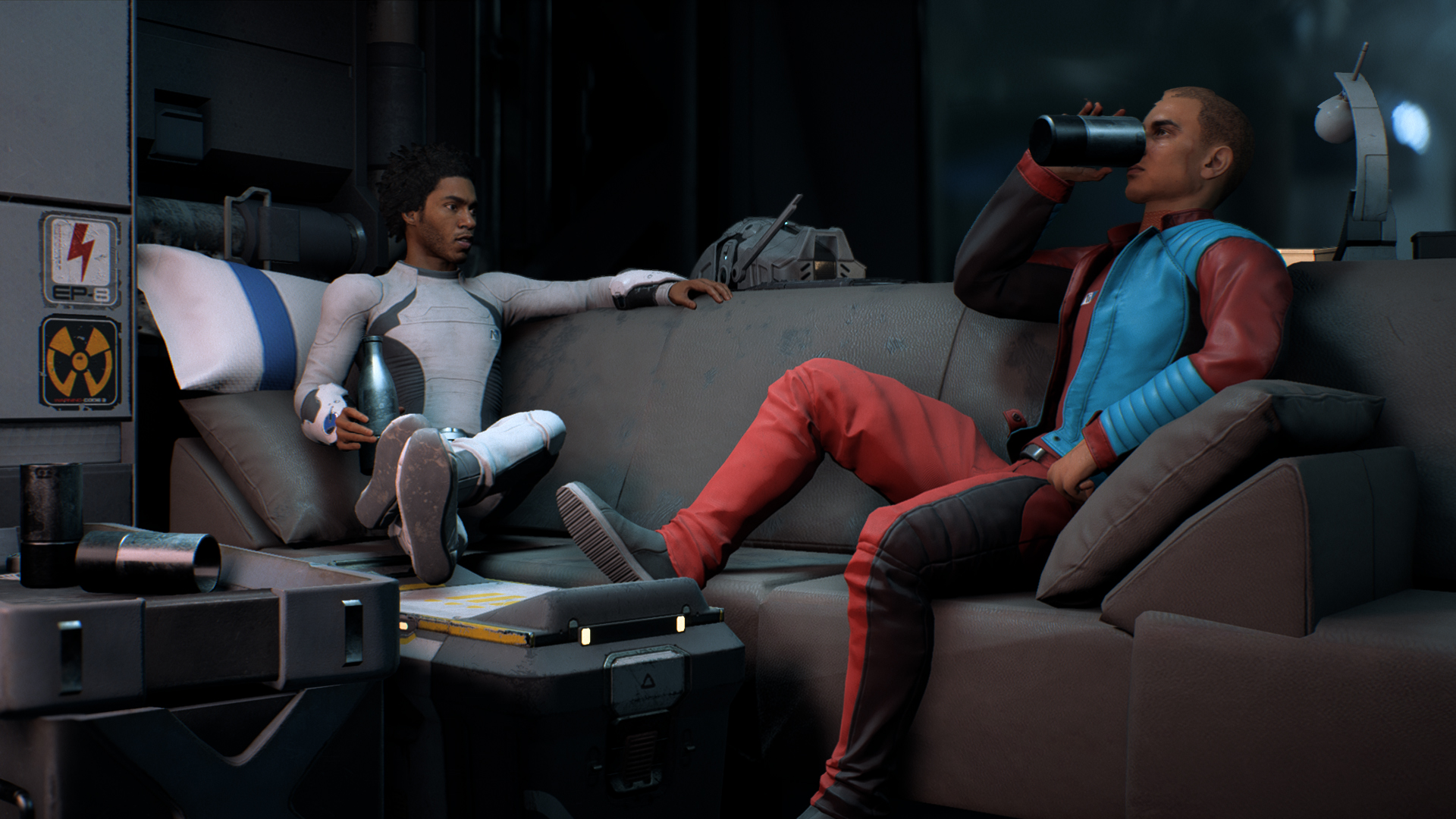Why food may be the most powerful game design tool
How changing our relationships to food and survival can alter games and genres.

The Pirahã people, who fish, hunt, and gather on the shore of the Maici River in the Amazon Rainforest, do not preserve or store their food. According to linguist and interloper Daniel Everett¹, Pirahã eat what they have when they have it. If they don’t fish for a day—instead choosing leisure or some other activity—they don’t eat that day, and consider not eating a normal part of life.

During Food Week on PC Gamer we looked at all the interesting ways games and grub intersect.
The Pirahã attitude toward food contradicts American attitudes, in that most Americans are obviously not hunter-gatherers, and cannot produce a meal from shared land at will, and do not feel secure without a surplus. Our attitudes show in the stories we tell and the games we make. We criticize the careless wastefulness that abundance has allowed us—food in BioShock Infinite is found in garbage cans (or toilets)—and we fear scarcity, viewing grocery store shelves emptied of canned meat as apocalyptic. The survival genre typically treats food as something to fight over, or die searching for. You can never have enough and there's never enough.
But there's appeal even to that violent vision, because survival games imagine a direct relationship between us and our food, at least when it can be 'grown' as part of the game. For most in wealthy, imperialist nations, our work (the majority of which doesn’t involve agriculture) is transformed into hamburgers through means beyond our control. We’re specks in a machine we can’t see the whole of, and we're forced to trust that it will keep working. Stardew Valley provides another example of this back-to-basics fantasy, in which we leave our confusing lives behind to become subsistence farmers, to regain a direct relationship between our daily work and the food we eat. It's notable that Stardew Valley is about abandoning the corporate bustle of the city to become a farmer, rather than simply a game about a farmer.
Our specific cultural attitudes toward food clearly inform our game design, which led me to wonder: Could we invent new kinds of games by adopting different attitudes toward food? What is not being designed when it comes to food, at least in the US?
Karaoke evolved
The assumption that society descends into ‘kill or be killed’ violence without the strict rule of law or modern niceties is at the root of many games in the survival genre.
We are contradictory: We romanticize a return to the farm, as in Stardew Valley, and yet we fear a world without a steady supply of mass-produced food, as in H1Z1 and DayZ. We want to escape the machine, but if the machine were gone? That's a world full of zombies and bears and murderers wearing motorcycle helmets.
The assumption that society descends into 'kill or be killed' violence without police and prisons and modern niceties is at the root of many games in the survival genre. But warring gangs aren't necessarily what would develop in these scenarios.
“It is the long experience of egalitarian sharing that has moulded our past,” argues social anthropologist Richard Lee², who studies hunting and gathering cultures. “Despite our seeming adaptation to life in hierarchical societies, and despite the rather dismal track record of human rights in many parts of the world, there are signs that humankind retains a deep-rooted sense of egalitarianism, a deep rooted commitment to the norm of reciprocity…”
Keep up to date with the most important stories and the best deals, as picked by the PC Gamer team.

Look for it, and the egalitarian nature Lee observes does manifest in survival games, though not usually according to the game's original design. Steven’s tale of roleplaying in an Ark: Survival Evolved server, for instance, is richer and more surprising than anything that’s happened to me while properly trying to survive in Ark. I asked Steven how he found food during all these adventures. Did he have to stop everything to go hunt? Not at all. At one point, his character collapsed because he’d entirely forgotten that he needed to eat, and other players rushed over to stuff food into his face and revive him. The server, which is specifically focused on roleplaying, also had a community center stocked with food and supplies for anyone to take.
The players on the TwitchRP server wanted to focus less on interacting with the survival aspects of Ark and more on interacting with each other, as Steven put it, but their characters still needed to eat. So they developed their world until they achieved abundance, which they shared freely with newcomers.
But if food were extremely scarce on this Ark server, as it is in DayZ, Steven’s story might have been very different—would players have divided up their small rations, or would they have protected them violently? We can completely change the social dynamics of a game with one variable, which makes food perhaps the most powerful and fascinating game design tool available.

Hunger games
Food can radically alter a game, but an apple icon that doesn't do anything is obviously not what I mean. I am assuming that this 'food' is consumable, of limited quantity (and potentially reproducible), and is required for 'survival' or 'progress.' It helps if it's absolutely required—eg, going hungry causes death. In many RPGs, eating rewards players with a beneficial status effect rather than preventing death, which aligns with a player’s typical goals in an RPG: to become more powerful, and to go on long adventures without worrying about basic necessities. But that wasn’t always the case. All the way back in 1987, Nethack required players to eat to live, as did other early RPGs. (Wes ended his Nethack series by eating a cockatrice and unwittingly turning himself to stone.)
The popularity of survival games came hand-in-hand with the resurrection of the roguelike, as we collectively remembered that simulating our real, mortal conditions can be as interesting as fantasizing about being immortal. Still, not that many games make food necessary, lest they be labeled ‘survival’ and not ‘role-playing’ or ‘action’—even though the average character in one of these games might not think of stopping for a sandwich as 'survival.'
Simulating our real, mortal conditions can be as interesting as fantasizing about being immortal.
But food is again becoming a fascination among designers. Jason Rohrer's One Hour One Life is an exemplary treatment of food as necessity. Players begin as babies and must be breast fed by a mother (another player) until they're grown enough to pick their own berries and carrots. But wild foods take time to regrow, requiring these small family units to adopt nomadic lives, or, as humans did some 11,500 years ago, take up agriculture and permanent homesteads—at least until nearby water supplies dry up from overuse.
Even without hard rules for player interaction (you can eat and craft and kill, basically), this simulation of early civilization maps, in rough strokes, the transition from foraging to agriculture, the danger of permanent settlement, and invention of surplus to mitigate that danger. In well-developed One Hour One Life settlements, I have seen the beginnings of societal roles—for example, some being relieved of the work of food production to develop technology. I've not witnessed anything so complex as, say, feudalism, but it is not unthinkable that a coordinated group of players could amass and defend a surplus, creating an underclass of farming peasants outside their walls. Imagine what might happen if Rohrer tweaked the variables to make food more or less scarce? It would not be the same game, redesigned by a single variable.

Even without making food necessary, the cultural and social aspects of eating and drinking are under exploited by games. The Mass Effect series, for instance, largely ignores food (except in a few instances) despite it being an integral part of what the game does want to explore: culture, socialization, and relationships. How many of us spent time in Mass Effect's bars even when nothing was to be gained by getting sloshed in space? I was attracted to booze because, despite Shepard's inability to properly put a glass to her mouth, drinking imbues her her life, biology, culture, and attitudes.
One of my favorite Mass Effect: Andromeda quests is a minor diversion in which you help your crew make snacks and drinks for a movie night—though it barely touches on the importance of the gesture. Culture, ethics, love, mortality: all of these things are concentrated within eating, and any chance to explore it can be a rich roleplaying opportunity.
Food bonds us all, and the intimacy of sharing a meal isn't necessarily lost in the translation to virtual food—MMO players will happily spend their time baking for the benefit of others if given the opportunity, and the shiny, savory-looking food of Final Fantasy 15 is one of my favorite aspects of the game. Conversely, the opening to Resident Evil 7 corrupts dinnertime, using our existing relationships with food to disgust us.
New relationships
Aside from simulating economics or ecology, we can invent new genres by concocting odder or more disturbing relationships with food.
Another under-explored food topic is its environmental consequences. One game that does tackle this idea is E.C.O., which challenges players to establish a civilization in a simulated ecosystem without destroying it. Players earn skill points through eating and must burn calories to perform work, making it a necessary part of life in the simulation, and part of the ecosystem’s balance.
But aside from those few exceptions, food is most commonly used by games to heal, or turn players into warlords in DayZ, or into surplus managers in strategy games.
Food has much more to give game design. It's deceptively simple—something that must be consumed regularly to stay alive³—but full of potential. Aside from simulating economics or ecology, we can invent new genres by concocting odder or more disturbing relationships with food: a game in which you can only eat food gifted to you, so being ostracized means death; a game in which food is produced by collective puzzle solving; a game which simulates the prison break and subsequent cannibalism among Alexander Pearce and company (you can probably guess who the last person standing was).
By imagining different relationships with food, games can challenge our real relationship with it—socially, economically, or just weirdly. Though I’m sure we’ll keep shooting each other over cans of beans, new 'survival' games could upend the genre by making even slight tweaks to how we produce and consume food, and how we think about ourselves in relation to it. RPGs, meanwhile, can enhance their worldbuilding and relationships by focusing more on the necessity and intimacy of eating, and the expansive web of cultural signs surrounding it.
Notes
1. Everett, Daniel Leonard. Don't Sleep, There Are Snakes: Life and Language in the Amazonian Jungle.
2. From Robert Lee's ‘Reflections on primitive communism,’ quoted by Chris Harman in A People's History of the World: From the Stone Age to the New Millennium, p. 7.
3. It's funny that in many games we need to conserve and find ammo, but not eat (except maybe to restore health). Though food isn't covered much in the post-apocalyptic Metro series, it cleverly uses ammunition as currency, suggesting the questions, 'Do you want to eat or kill?' or 'Feed your gun or yourself?'
This article was originally published in May 2017. It has been revised and updated as of July 2018.

Tyler grew up in Silicon Valley during the '80s and '90s, playing games like Zork and Arkanoid on early PCs. He was later captivated by Myst, SimCity, Civilization, Command & Conquer, all the shooters they call "boomer shooters" now, and PS1 classic Bushido Blade (that's right: he had Bleem!). Tyler joined PC Gamer in 2011, and today he's focused on the site's news coverage. His hobbies include amateur boxing and adding to his 1,200-plus hours in Rocket League.

